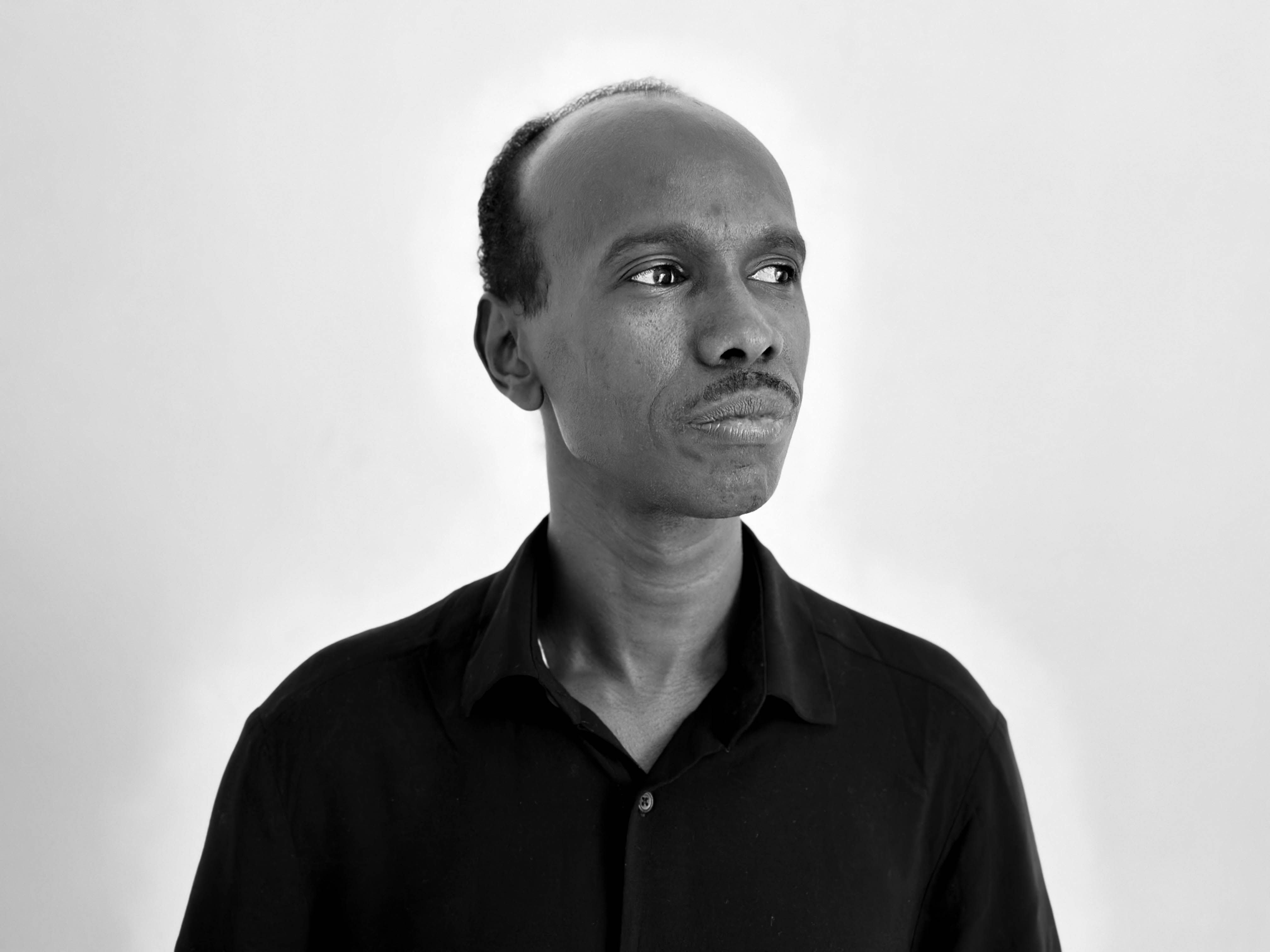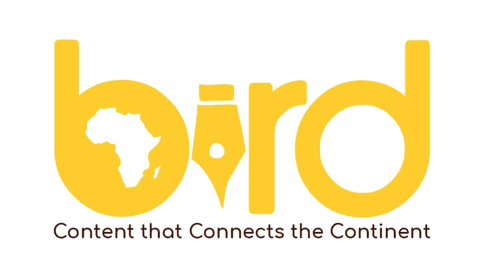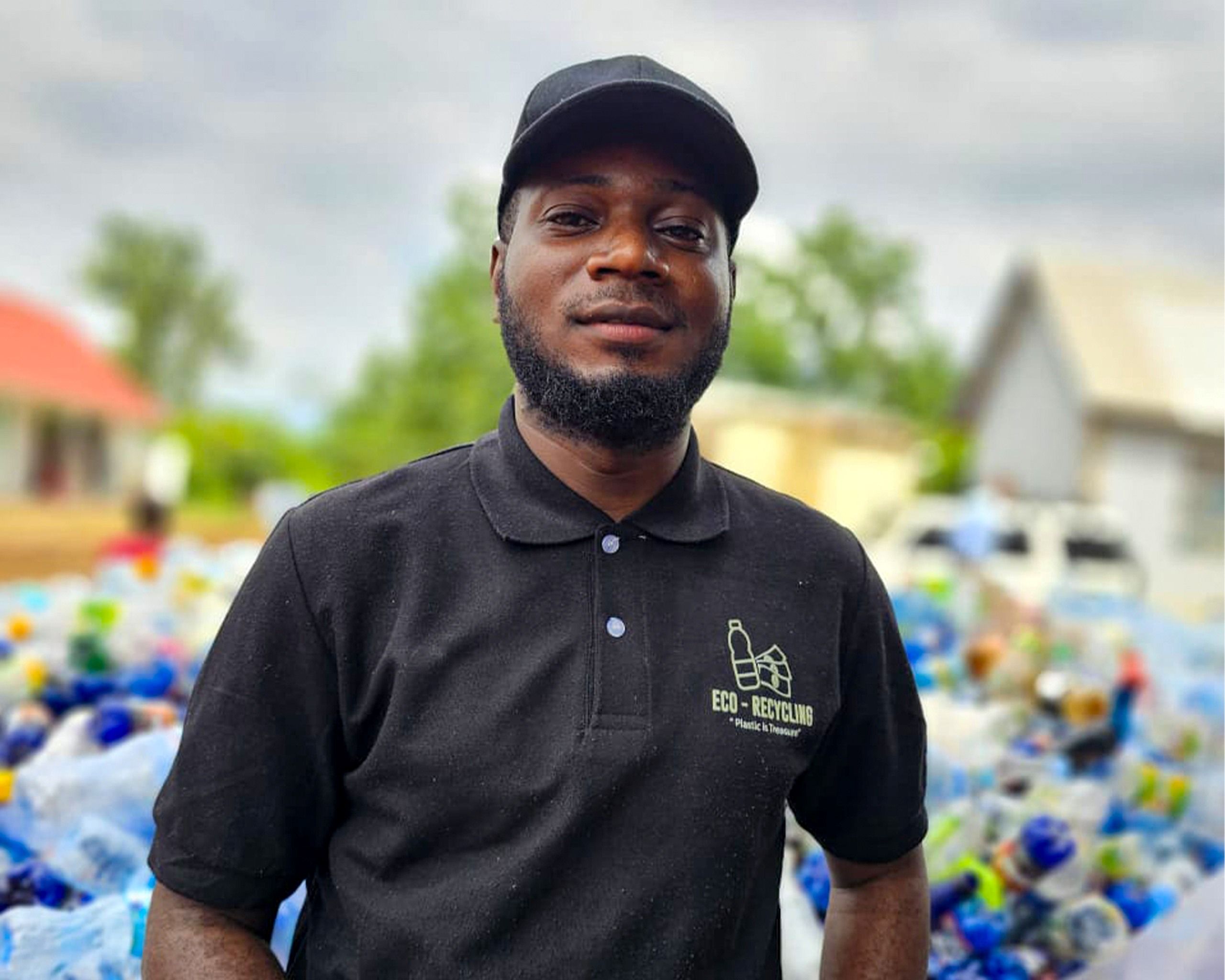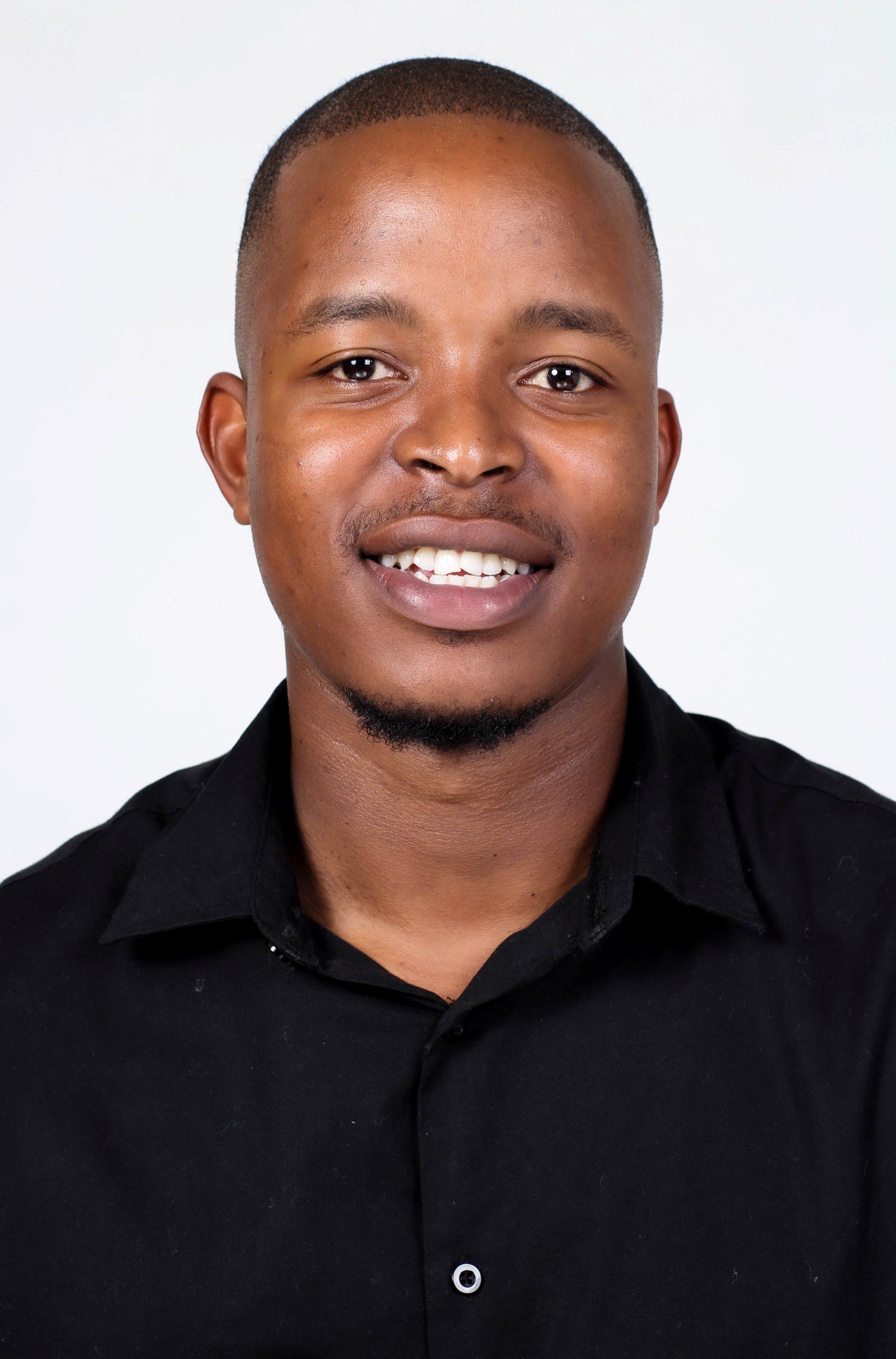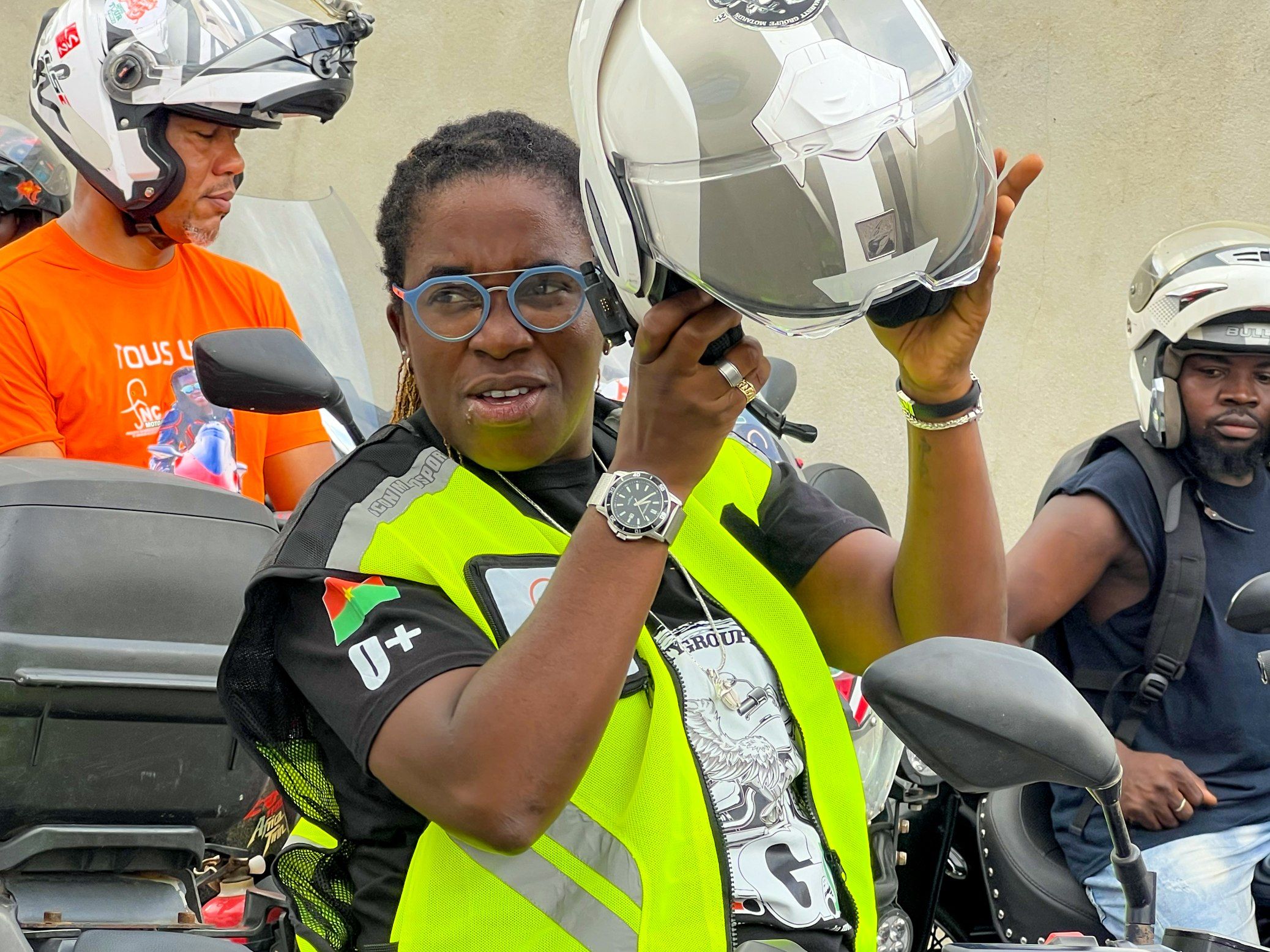Sudanese filmmaker Yasir Faiz opens up about fleeing war, reclaiming identity in exile, and using film as a force for healing and resistance. Now based in Kenya, he shares his vision for a borderless Sudanese culture, and the power of storytelling to rebuild from rupture.

Bonface Orucho, bird story agency
When the war in Sudan broke out in 2023, Yasir Faiz had already spent over a decade nurturing stories through the lens of journalism, film, and cultural activism. But as bullets tore through his Khartoum neighbourhood, he and his family were forced to flee, eventually making their way to Kenya.
Now based in Nairobi, Faiz is rebuilding, personally and professionally. He is working on a new film, co-producing with Kenyan creatives, and imagining how displaced Sudanese artists can help shape a broader cultural ecosystem across Africa.
For Faiz, filmmaking is not just an art form; it’s a tool for survival, truth-telling, and national healing. From training children in grassroots storytelling to championing Sudanese identity in exile, he’s navigating a deeply personal journey of resilience and reinvention.
“In Sudan, we’ve already paid a price for who we are,” he says. “So let’s stop waiting and start creating.”
In this conversation, Yasir reflects on war, displacement, artistic purpose, and his dream for a united, civilian-led Sudan.
This interview has been edited for length and clarity.
You spent your childhood in Iraq. What was it like returning to Sudan, and how did that shape your early identity?
Yasir Faiz: I returned to Sudan from Iraq, and that was the start of a new life for me. I had spent most of my childhood and teenage years in Iraq, so coming back wasn’t easy. I struggled to connect with the community, especially because Iraq was much more developed than Sudan at the time.
It was a difficult adjustment. I finished my secondary education, the Sudanese Certificate, and then enrolled in a physics program at university. That was my background then. I also explored electronics engineering for a while.
How did you discover storytelling, and what led you from physics to cultural journalism?
Yasir Faiz: During college, by accident, really, I began a career in journalism. It started with cultural journalism. By the time I was in my final year, I was already working professionally as a non-formal journalist.
So I made the shift and committed fully to journalism and cultural production, especially in literature. That’s where I found my voice and my connection to Sudanese identity.
When did filmmaking enter the picture, and what made you take it seriously?
Yasir Faiz: Since around 2003, I had been exploring filmmaking as a hobby. I knew how to use a camera, record sound, and do basic editing. In my mind, I had already started imagining myself as a director, but I didn’t take any formal steps until 2010.
That year, the Goethe-Institut in Sudan put out a call for aspiring filmmakers. They planned to train a few people and produce five short films. I was selected. That’s when I directed my first piece, an experimental documentary released in 2011.
Sudan’s 2013 protests were a turning point for you. Why did you leave journalism, and what did you hope to find in film?
Yasir Faiz: The protests changed everything. The government responded with brutal violence, people were killed. I was still working in the media, but I felt the Sudanese press failed to properly cover what was happening on the ground.
That was a moment of deep disillusionment. I resigned and joined civil society for a year. After that, I co-founded my first media production company. I realised that if journalism couldn’t give voice to the people, maybe film could.
You co-led an initiative training children in filmmaking. What was the vision behind that?
Yasir Faiz: That project was called Filmmaking for Children, and it ran from 2015 to 2019. We trained around 300 kids across Sudan, and they made about 70 short films.
These weren’t professional in the strict sense, but they were powerful. It was a huge learning experience for all of us. I wanted to help build a generation that could see film not just as entertainment, but as a tool for expression and identity.
Let’s talk about the war. What do you remember most about the day you fled Khartoum?
Yasir Faiz: We were living in a neighbourhood that became a war zone very early on—right in the middle of Khartoum. The bombing and shooting started almost immediately and didn’t stop.
On the 15th day, we managed to escape. The military was surrounding us. The shooting was nonstop. We waited for a one-hour ceasefire, not a full one, but enough of a break, and we used that window to flee.
We walked for a long time, switched buses multiple times, and moved from place to place until we reached the Egyptian border. We spent 36 hours there before being allowed through.
You passed through Egypt before settling in Kenya. What was that experience like?
Yasir Faiz: I stayed in Aswan first, then took a flight to Cairo where I had a temporary place to stay. That’s when I started working on my current film.
But staying in Egypt became very complicated. Getting permits or extending visas was difficult from the very first month. Eventually, they closed the border, and if you left Egypt, it became nearly impossible to return.
I’m grateful to Egypt, they’ve done a lot for Sudanese refugees, but I needed a place where I could work freely and move around if I had to. That’s why I decided to come to Kenya.
You’ve now rebuilt your life and creative work in Kenya. How did you begin again?
Yasir Faiz: This wasn’t my first time in Kenya, I had visited before. But this time was different. I came here with the goal of rebuilding.
It’s been very challenging. I lost my job. My company back home is gone, everything: the team, the office, the equipment. I even lost my house.
Starting over in a new country with no support, no financial backing and no equipment is hard. But the filmmaking environment here is welcoming, especially toward fellow Africans. I’m now working on a film with a Kenyan co-producer. We even managed to shoot in Kenya, using locations here as stand-ins for Sudan.
The negative parts of my story are about war, not Kenya. Kenya has actually made my work possible.
Your new film is called Bougainvillea. What’s the story behind it, and why does it matter to you?
Yasir Faiz: The bougainvillaea plant is beautiful, but it thrives in tough environments. That symbolism stuck with me. The film will explore themes of memory, loss, and trying to hold onto identity when everything around you is collapsing.
It is a 17-minute short film. I consider it my first real film, not just technically, but emotionally. It’s the first story I’m telling from a place of total rupture and rebuilding.
Looking back, which films or projects do you consider central to your journey?
Yasir Faiz: There’s The Dog’s Shitter from 2019, a short narrative film shot between the Netherlands and France. I worked as the second unit director and handled the Sudan segments.
Then there’s Journey to Kenya, a documentary I co-wrote. It follows Sudanese athletes who had to travel overland through Ethiopia because they couldn’t afford flights, yet they still made it to the competition and won. That film earned us the Special Jury Award at the Sudan Independent Film Festival—it’s a story that stayed with me.
But Bougainvillea is the one I fully claim as mine. It’s personal. It focuses on the experiences of women detained during Sudan’s 2018 revolution—stories of pain, courage and memory. It’s the first film I’m directing entirely on my own, from a place of emotional rupture and creative rebirth.
What does the Sudanese filmmaking ecosystem look like today, and where do you see it going?
Yasir Faiz: It’s still very small. And most Sudanese filmmakers are based abroad; there’s no film school in Sudan, no infrastructure.
If I had to describe it in waves, I’d say there are three. I’m part of the third wave, with two or three others. Many from the second wave are our age, but they never lived in Sudan. They studied film abroad and stayed there.
It’s a scattered scene, but there’s a strong desire to tell our stories. That gives me hope.
Are women well represented in the space? Where are the gaps?
Yasir Faiz: Women filmmakers are even fewer. There are brilliant people like Marwa Zein and Suzannah Mirghani. From our generation, there’s Rawya Hajj, who co-directed Khartoum Offside and is now based in Kenya.
When I started working on Bougainvillea, I actively looked for a female co-writer. I couldn’t find one.
There are real gaps, especially in screenwriting, editing and cinematography. There are some female videographers, but few women in the technical and creative decision-making roles. That has to change.
You’ve spoken of a ‘Sudan beyond geography’. What future do you dream of for the country?
Yasir Faiz: Our culture doesn’t stop at the border. It flows east to Eritrea and Djibouti, west to Chad. That’s why I talk about a Sudan beyond geography.
I’m not saying South Sudan should reunite. That’s their choice. But we’re still connected, and the next generation of Sudanese leadership must think beyond the map.
My three words for Sudan’s future? United. Democratic. Civilian.
But stability isn’t just peace, it’s development. You must grow to sustain peace.
What role do you see culture and storytelling playing in rebuilding Sudan?
Yasir Faiz: Culture is how we remember, and how we heal. Film forces us to see ourselves honestly. It allows us to archive what happened and imagine what’s possible.
Storytelling is not a luxury in a post-conflict society. It’s a necessity.
What do you hope your films awaken in Sudanese viewers and beyond?
Yasir Faiz: I want people to truly know themselves. To face our weaknesses, to admit that our problems are ours, not someone else’s. Enemies exist, yes. But the real battle is within. We must confront ourselves and love ourselves enough to grow.
Finally, what would you say to a young Sudanese dreamer just starting out?
Yasir Faiz: Start. Wherever you are, with whatever you have. Don’t wait.
We live in an age where you can learn anything. Just yesterday, I watched something on Netflix and wondered how they shot it. I googled it, and found everything I needed.
Whether you succeed or fail, the point is to begin.
As Africans, and in my case, someone shaped by both Arab and African roots, we’ve already paid a price for who we are. We don’t even know why.
So let’s stop delaying who we’re meant to be. Start now. It may not be easy, but it will be worth it.
bird story agency
You will also love: Chris Attoh: The Ghanaian Actor and Filmmaker Building a Legacy in African Film

